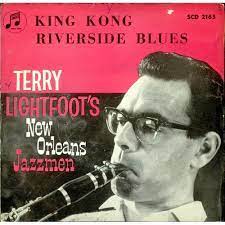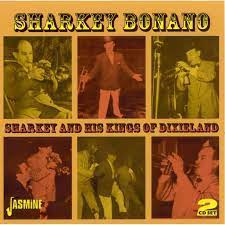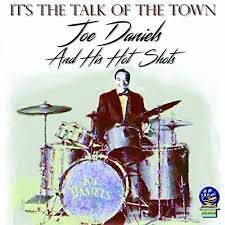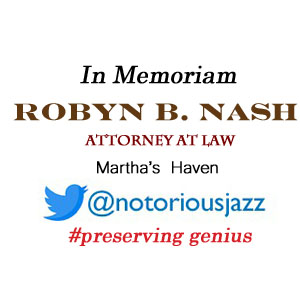
Daily Dose Of Jazz…
Terence Lightfoot was born on May 21, 1935 in Potters Bar, Middlesex, England. He started his musical career as a vocalist during early school life, singing popular songs with a small amateur variety group. In 1949, he came to jazz while at Enfield Grammar School in Enfield Town, London, England. He changed from playing the trumpet to clarinet to meet the needs of the traditional Dixieland jazz band of his friends. After leaving school, he formed his first jazz band, the Wood Green Stompers.
In 1955 he formed the band Terry Lightfoot’s New Orleans Jazzmen. In the Sixties they had three minor hits in the UK Singles Chart in 1961 and 1962, True Love, King Kong and Tavern in the Town. The group made regular Sunday night appearances at the Wood Green Jazz Club.
Clarinetist Terence Lightfoot transitioned from prostate cancer in Milton Keynes General Hospital on March 15, 2013 at the age of 77.
More Posts: bandleader,clarinet,history,instrumental,jazz,music

Daily Dose Of Jazz…
Rod Cless was born George Roderick Cless on May 20, 1907 in Lenox, Iowa. He began playing in bands in college including the Varsity Five, darlings of Iowa State University. In the mid-’20s he relocated to Des Moines, Iowa where he first came into contact with an important influence, bandleader Frank Teschemacher, known as “Tesch” to his musical cohorts. The two went to Chicago, Illinois together and began playing with groups such as the orchestra of Charlie Pierce.
The late ’20s saw Cless touring in the south with Frank Quartell’s Band, including his first journey to New Orleans, Lousiana. Back in Chicago he squatted at the Wigwam Club and enlisted with the combo of Louis Panico, a fairly calm bandleader despite contrary indications suggested by his surname. During this time Rod began playing more saxophone and took part in gigs with a less pronounced jazz content. Extended club residencies and stay-at-home employment allowed him to expand his clarinet instruction.
By the spring of 1939 he returned to pure jazz work joining up with Muggsy Spanier’s band the Ragtimers, followed by two years with pianist Art Hodes. Other gigs in the ’40s included work with Marty Marsala, Ed Farley, Georg Brunis, and Wild Bill Davidson as well as Bobby Hackett. In 1944 he played with Max Kaminsky at New York City’s Pied Piper Club. when Cless suffered catastrophic injuries toppling over the railings of an apartment, subsequently surviving for only four days in the hospital. ~
Named George Roderick Cless, he was related by marriage to the much better-known reedman Bud Freeman, but certainly had a respectable career in the Dixieland ensembles of leaders such as Muggsy Spanier and Bobby Hackett.
After walking home the last night of a gig at the Pied Piper in New York City, clarinetist and saxophonist Rod Cless, who recorded with Muggsy Spanier tunes for Bluebird Records, fell several stories over the balcony of his apartment and transitioned from the fall four days later on December 8, 1944 at the age of 37.
More Posts: clarinet,history,instrumental,jazz,music,saxophone

Daily Dose Of Jazz…
Sharkey Bonano was born Joseph Gustaf Bonano on April 9, 1904 in the Milneburg neighborhood of New Orleans, Louisiana near Lake Pontchartrain. In the 1920s he was in the local bands of Freddie Newman and Chink Martin. After moving to New York City he found work as a member of the Wolverines and with Jimmy Durante.
He worked next to Frankie Trumbauer and Bix Beiderbecke as a member of the Jean Goldkette orchestra. At the end of the 1920s, he led a band which included Louis Prima. During the 1930s he formed the Sharks of Rhythm and played in the Original Dixieland Jass Band. His sidemen during this period included Santo Pecora and Thurman Teague.
After World War II he toured Europe, Asia, and South America, played residencies in Chicago and New York, and then was a regular on Bourbon Street in the New Orleans French Quarter. In 1949, he appeared at the Roosevelt Hotel’s Blue Room and the Famous Door Bar.
Trumpeter Sharkey Bonano transitioned on March 27, 1972, at the age of 67.
More Posts: history,instrumental,jazz,music,trumpet

Daily Dose Of Jazz
Keith John Smith was born on March 19, 1940 in Isleworth, Middlesex, England. Originally intent on pursuing studies in engineering, he began playing trumpet at the age of 15. Soon after he began playing in local amateur ensembles, including Norrie Cox’s band and the New Teao Brass Band, the latter including Chris Barber and Ken Colyer.
His first professional gig came in 1960 as a member of Mickey Ashman’s Ragtime Jazz Band. In 1962, he started the Climax Jazz Band and began recording. In 1964, Smith visited New Orleans for the first time, where he played with George Lewis. Intending to move to the U.S. permanently, he worked briefly in New Orleans, Louisiana before spending time in California and New York. In 1966, he organized an all-star band to tour Canada and Europe, which included Pops Foster, Jimmy Archey, and Alvin Alcorn.
Moving to Denmark in 1972 he remained there until 1975, playing with Papa Bue in his Viking Jazz Band. Afterwards he returned to England, where he founded a new band, Hefty Jazz. This group lasted over a decade, toured internationally and over the years featured George Chisholm, Mick Pyne, Peanuts Hucko, Nat Pierce, Johnny Mince, and Barrett Deems. Concurrently, he was named leader of the Louis Armstrong All-Stars in 1981, and in 1984 served as producer for Stardust Road, a televised film made as a tribute to Hoagy Carmichael. Late in his life he lived in Germany, still active as a performer.
Trumpeter Keith Smith, principally active on the trad jazz and Dixieland revival scenes, transitioned on January 4, 2008 in London, England from a heart attack at the age of 67.
More Posts: bandleader,history,instrumental,jazz,music,trumpet

Daily Dose Of Jazz…
Joe Daniels was born in Zeerust, South Africa on March 9, 1909 and left his native South Africa for England as a young boy. In 1922 at 14 years of age he was already part of the 1920s London club scene, playing in bands led by Harry and Burton Lester, Billy Mason and Fred Elizade.
Daniels went on to play with Sid Roy before forming his own band with trumpeter Max Goldberg in 1926. Around 1930, he started recording as Joe Daniel’s Hot Shots, and they became a popular recording band. The band, with Bobby King as the vocalist, performed on early BBC radio shows many times, and recorded on Parlophone.
At the outbreak of the Second World War, Joe joined the Royal Air Force, where he organized an air force band, and produced shows for the troops. After the war and throughout the 1950s, 1960s and 1970s, he played in both small and in big bands, including recording under the name Washboard Joe and His Scrubbers. Their recording of I Love Onions / Paper Kisses was released on Parlophone in 1955.
In 1957, he toured as the Big DixieLand Group, while Joe Daniels and the Hot Shots were his ballroom band for Butlin’s Holiday Camp during the mid 1960s. He often played to a full house and was in tune with the campers’ frivolity: one of the most popular dances that got everyone on the floor was the March of the Mods.
Among his more popular numbers was Experiments with Mice. Drummer Joe Daniels, who continued to play Dixieland until 1990, transitioned on July 2, 1993, in Northwood, Middlesex, England, at the age of 84.
More Posts: bandleader,drums,history,instrumental,jazz,music





